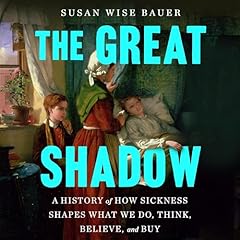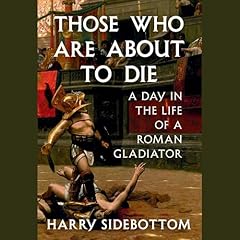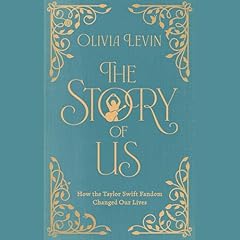
I Told You So!
Scientists Who Were Ridiculed, Exiled, and Imprisoned for Being Right
No se pudo agregar al carrito
Add to Cart failed.
Error al Agregar a Lista de Deseos.
Error al eliminar de la lista de deseos.
Error al añadir a tu biblioteca
Error al seguir el podcast
Error al dejar de seguir el podcast
Obtén 3 meses por US$0.99 al mes
 Exclusivo para miembros Prime: ¿Nuevo en Audible? Obtén 2 audiolibros gratis con tu prueba.
Exclusivo para miembros Prime: ¿Nuevo en Audible? Obtén 2 audiolibros gratis con tu prueba.
Haz tu pedido de preventa ahora por $20.24
-
Narrado por:
-
Sean Pratt
-
De:
-
Matt Kaplan
An energetic and impassioned work of popular science about scientists who have had to fight for their revolutionary ideas to be accepted—from Darwin to Pasteur to modern day Nobel Prize winners.
For two decades, Matt Kaplan has covered science for the Economist. He’s seen breakthroughs often occur in spite of, rather than because of, the behavior of the research community, and how support can be withheld for those who don’t conform or have the right connections. In this passionately argued and entertaining book, Kaplan narrates the history of the 19th century Hungarian physician Ignaz Semmelweis, who realized that Childbed fever—a devastating infection that only struck women who had recently given birth—was spread by doctors not washing their hands. Semmelweis was met with overwhelming hostility by those offended at the notion that doctors were at fault, and is a prime example of how the scientific community often fights new ideas, even when the facts are staring them in the face.
In entertaining prose, Kaplan reveals scientific cases past and present to make his case. Some are familiar, like Galileo being threatened with torture and Nobel laureate Katalin Karikó being fired when on the brink of discovering how to wield mRNA–a finding that proved pivotal for the creation of the Covid-19 vaccine. Others less so, like researchers silenced for raising safety concerns about new drugs, and biologists ridiculed for revealing major flaws in the way rodent research is conducted. Kaplan shows how the scientific community can work faster and better by making reasonably small changes to the forces that shape it.
A Macmillan Audio production from St. Martin’s Press
Reseñas de la Crítica
“Enlightening … a timely and important call for change.”—Publishers Weekly, starred review
"Informative … an eloquent plea for reforming research funding and reducing bias.”—Kirkus Reviews
“This engaging historical exploration of overlooked scientists and their discoveries is highly recommended.”—Library Journal
“Kaplan writes about the unsung scientists who, due to reasons often beyond their control, were maligned, imprisoned, or ignored by the scientific community of their time … Through these narratives, the author sheds light on the systemic barriers faced by visionary researchers.”—Booklist
“Thoroughly absorbing and insightful!”
–Bill Bryson, author of The Body: A Guide for Occupants
“Matt Kaplan captured me from page one – and he deftly, often humorously, jumps between research past and present. The questions that he asks about the nature of research and how we go about it are of pivotal importance. You will never look at science the same way again!”
— Siddhartha Mukherjee, author of Emperor of All Maladies
“An essential wake-up call for the scientific community. Through meticulously researched historical cases and contemporary examples, he exposes how ego, institutional politics, and flawed funding systems suppress breakthrough discoveries. From Semmelweis to Karikó, he reveals that science's greatest enemy is often scientists themselves. Every researcher, journal editor, and grant reviewer should read this book.”
—Michelle Williams, ScD, Professor of Epidemiology and Population Health, Stanford University, School of Medicine
“A fascinating historical dissection of the ever-evolving history of science that will entice and inspire all who travel this illuminating literary journey! A must read for all.”
—VADM (Ret) Richard Carmona, MD, MPH, FACS, 17th Surgeon General of The United States
Las personas que vieron esto también vieron:




















